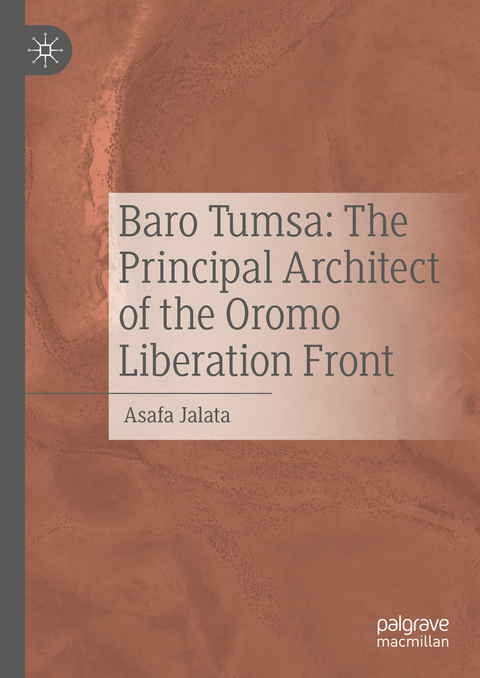
Baro Tumsa: The Principal Architect of the Oromo Liberation Front
Springer International Publishing (Verlag)
978-3-031-59686-5 (ISBN)
This book identifies and examines the role of Baro Tumsa in clandestinely bringing together a few Oromo nationalists of diverse backgrounds from all over Oromia, the Oromo country, to establish the Oromo Liberation Front (OLF) between the late 1960s and the mid- 1970s in Oromia and Ethiopia. The Haile Selassie government's destruction of Oromo movements, mainly the Macha-Tulama Self-Help Association (MTA), was an immediate reason for the birth of the front. While most Oromos have supported and sympathized with this liberation organization, the colonizers and their agents have vilified and attacked it to make the Oromo society leaderless. For almost a half-century, the OLF has been struggling to uproot Ethiopian (Amhara-Tigray) settler colonialism and its institutions from Oromia to end the domination and exploitation of the Oromo. The book also examines the roles of leaders and social movements in organizing oppressed peoples for collective actions by creating organizations that have visions and missions to liberate themselves. It is a case study of global social movements and leadership studies.
Asafa Jalata is the Betty Lynn Hendrickson Professor and Professor of Sociology and Global and Africana Studies at the University of Tennessee, Knoxville, USA. As a leading social scientist in the fields of indigenous and human rights issues, critical race studies, Africana and global studies, and nationalism and terrorism studies, Professor Jalata has engaged in studying and explaining the chains of cultural, historical, and political-economic forces of the capitalist world system that have shaped racial/ethnic inequality, development, underdevelopment, terrorism, and social movements on local, regional, and global levels. He is a worldwide renowned scholar in Oromo studies and these fields. Professor Jalata has published and edited fifteen books, eighteen book chapters, and seven dozen referred articles in national, regional, and international journals. As a public sociologist, he has also published several public journal articles.
Chapter 1: Introduction.- Chapter 2: Theory of Quality Leadership.- Chapter 3: Baro and Gudina Tumsa: From Early Life to Adulthood.- Chapter 4: College Life and Political Involvement.- Chapter 5: Baro Tumsa's Involvement with the MTA and Political Activism.- Chapter 6: Professionalism, Political Activism, and Networking.- Chapter 7: Baro and the Founding of the OLF.- Chapter 8: Political Opportunities, Challenges, and the Survival of OLF.- Chapter 9: The OLF: Baro's Legacy, Long Journey, Achievements,
and Resilience.
| Erscheinungsdatum | 10.09.2024 |
|---|---|
| Zusatzinfo | XV, 289 p. |
| Verlagsort | Cham |
| Sprache | englisch |
| Maße | 148 x 210 mm |
| Themenwelt | Sozialwissenschaften ► Ethnologie |
| Sozialwissenschaften ► Politik / Verwaltung | |
| Sozialwissenschaften ► Soziologie ► Spezielle Soziologien | |
| Schlagworte | African Studies • Baro Tumsa • Ethiopia • Oromos • race and ethnicity studies • Social Movements |
| ISBN-10 | 3-031-59686-2 / 3031596862 |
| ISBN-13 | 978-3-031-59686-5 / 9783031596865 |
| Zustand | Neuware |
| Haben Sie eine Frage zum Produkt? |
aus dem Bereich


